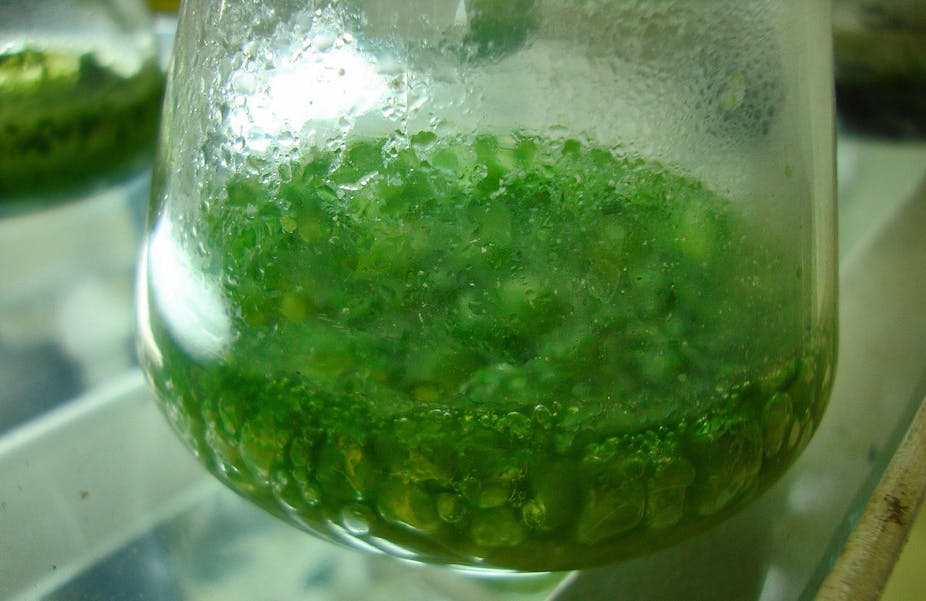Global warming is having a significant impact on marine life, as many marine organisms are adapted to live only within the average temperature range of their habitats. This applies to larger fish and sea mammals, and to phytoplankton, tiny plant-like organisms that float across the oceans. Our study, published today in the journal Nature Climate Change, sought to research how phytoplankton would cope in a warming world.
Many of these organisms belong to the very diverse group of algae. Together they are responsible for about half the carbon dioxide that is drawn up from the atmosphere, or fixed, into their cells annually. They are also contribute massively to other biogeochemical ocean processes such as the carbon, nitrogen and phosphorous cycles. It is phytoplankton that provide the oxygen for every other breath we take - a fact that reflects their significance for all oxygen-dependent life on land and sea. Phytoplankton also form the base of the marine food web that supports fisheries which provide food for humans, so these organisms are incredibly important for food security.
The delicate interplay between environmental conditions and phytoplankton’s ability to cope with them determines the diversity and productivity of their communities. Thus, any change of environmental conditions such as an increase in temperatures due to global warming has knock-on effects on these communities with consequences for biogeochemical cycles in the ocean and consumers that depend on phytoplankton as a food source.
Rising temperatures will have both direct and indirect effects on phytoplankton. Interestingly, many more studies have focused on the indirect effects, such as enhanced stratification in tropical oceans and the retreat of sea ice at the poles.
Stratification reduces the influx of nutrients rising from deep, nutrient-rich waters, depriving phytoplankton living near the surface of the oceans. Consequently, smaller phytoplankton species, such as cyanobacteria (or blue-green algae), thrive, because their increased surface-to-volume ratio or ability to draw nitrogen from the air gives them the edge in competing for scarce nutrients. Retreating sea ice in polar oceans such as the Arctic also affects phytoplankton productivity: without sea ice coverage, more light is available in the open water for phytoplankton to grow faster.
However, much less is known about the direct effects rising sea temperatures would have on these vital phytoplankton. Our study uses an integrative approach that examines the impacts from the sub-cellular level to the biosphere. This is something that has not been done before for marine organisms and their habitats.

Combining very different methods, from molecular biology to earth-system modelling, allowed us to uncover how temperature directly affects the important ocean cycles of nitrogen and phosphorous. Under warmer temperatures phytoplankton do not seem to produce as many ribosomes, used in cells to produce proteins, as under lower temperatures. Ribosomes are rich in phosphorous due to high concentrations of ribosomal RNA, ribonucleic acid.
But if the number of ribosomes in algae cells are reduced, a higher ratio of nitrogen to phosphorous will build up. Over time, taken across the billions of algae in the oceans, this will decrease the amount of oceanic nitrogen, which will eventually lead to a greater prevalence of cyanobacteria that are able to fix nitrogen from the air.
So, unknown to scientists before, our study reveals that warming temperatures will have a direct impact on the sub-cellular metabolism of phytoplankton, which in turn is predicted to have a significant impact on nitrogen and phosphorous cycles in the ocean. This shift will have knock-on effects on important marine food webs and the carbon cycle. These results must add to present concerns about the effects of global warming on the functioning of ocean ecosystems.

